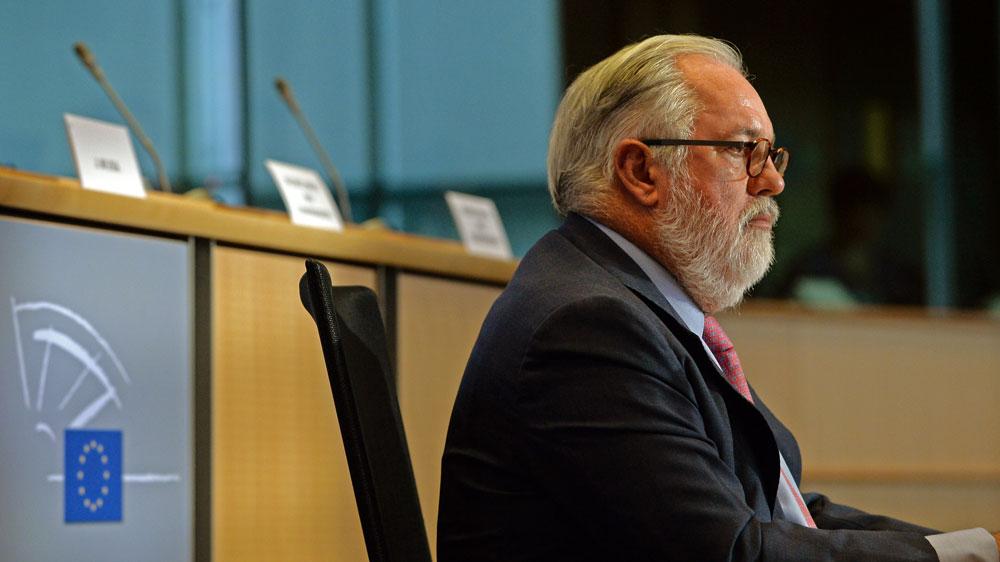New EU rules on renewable energy, energy efficiency and governance
On December 4 the revised Energy Efficiency Directive, the revised Renewable Energy Directive and the new Governance Regulation were formally adopted at the Transport, Telecommunications & Energy Council, following on from the strong support that all three dossiers got from MEPs at last month’s European Parliament Plenary session.
The EU has adopted four of the eight legislative acts which make up the Clean Energy for All Europeans package, published by the European Commission on 30 November 2016. This package is a key element in one of the Juncker Commission’s priorities – “a resilient Energy Union and a forward-looking climate change policy”, aimed at giving Europeans access to secure, affordable and climate-friendly energy and making the European Union world leader in renewable energy.
“These three dossiers are central to achieving our climate goals – in terms of defining our targets for 2030. Coming just after the Commission outlined its long-term strategy for emissions reduction, today’s adoption sends a further strong signal to climate talks in Katowice underlining the EU’s commitment to meeting our Paris Agreement objectives,” Commissioner for Climate Action and Energy Miguel Arias Cañete added.
The new regulatory framework, in particular via the introduction of the first national energy and climate plans, brings regulatory certainty and enabling conditions for essential investments to take place in this important sector. It empowers European consumers to become fully active players in the energy transition and fixes two new targets for the EU in 2030: a binding renewable energy target of at least 32% and an energy efficiency target of at least 32.5%, which will stimulate Europe’s industrial competitiveness, boost growth and jobs, reduce energy bills, help tackle energy poverty and improve air quality. When these policies are fully implemented, they will lead to steeper emission reductions for the whole EU than anticipated – some 45% by 2030 compared to 1990, instead of 40%. To strive towards a long-term greenhouse gas reduction objective, the framework sets up a robust governance system of the Energy Union.
Main achievements
Renewable energy
- Sets a new, binding, renewable energy target for the EU for 2030 of at least 32%, including a review clause by 2023 for an upward revision of the EU level target.
- Improves the design and stability of support schemes for renewables.
- Delivers real streamlining and reduction of administrative procedures.
- Establishes a clear and stable regulatory framework on self-consumption.
- Increases the level of ambition for the transport and heating/cooling sectors.
- Improves the sustainability of the use of bioenergy.
Energy efficiency
- Sets a new energy efficiency target for the EU for 2030 of at least 32.5%, with an upwards revision clause by 2023;
- Will extend the annual energy saving obligation beyond 2020, which will attract private investments and support the emergence of new market actors;
- Will strengthen rules on individual metering and billing of thermal energy by giving consumers – especially those in multi-apartment building with collective heating systems – clearer rights to receive more frequent and more useful information on their energy consumption, enabling them to better understand and control their heating bills.
- Will require Member States to have in place transparent, publicly available national rules on the allocation of the cost of heating, cooling and hot water consumption in multi-apartment and multi-purpose buildings with collective systems for such services.
Governance of the Energy Union and climate action
- Puts in place a simplified, robust and transparent governance for the Energy Union which promotes long-term certainty and predictability for investors and ensures that EU and Member States can work together towards achieving the 2030 targets and the EU’s international commitments under the Paris Agreement.
- Calls for each Member State to prepare a national energy and climate plan for the period 2021 to 2030, covering all the five dimension of the Energy Union and taking into account the longer-term perspective.
- Aligns the frequency and timing of reporting obligations across the five dimensions of the Energy Union and with the Paris Climate Agreement, significantly enhancing transparency and reducing the administrative burden for the Member States, the Commission and other EU Institutions.
Next steps
Following this approval by the Council of Ministers, and the previous adoption by the European Parliament, a formal signature will take place in coming days. This will be followed by the publication of the texts in the Official Journal of the European Union later this month, with the new legislation entering into force 3 days later. The new Governance Regulation requires Member States to present their draft National Energy and Climate Plans before the end of 2018.







